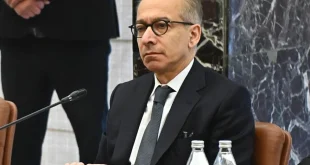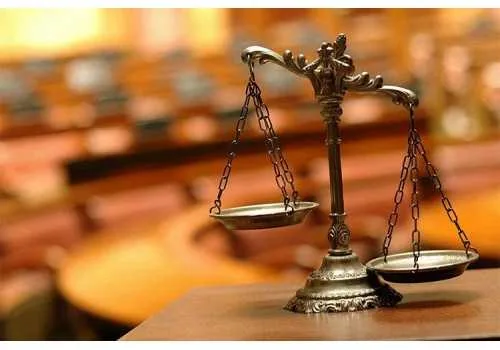قطاع الاتصالات في لبنان: أغلى فاتورة وخدمات ضعيفة
يُعتبر قطاع الاتصالات في لبنان من المصادر الأساسية لإيرادات الدولة، حيث يُعرف بأنه “نفط لبنان” ويُساهم بنحو 1.5 مليار دولار سنويًا في خزينة الدولة. إلا أن هذا القطاع، رغم ربحه الكبير، يعاني من مشاكل متعددة أثرت سلبًا على جودة خدماته، وسط ارتفاع التكاليف على المواطنين اللبنانيين.
وزير الاتصالات اللبناني، شارل الحاج، أكد أن التعامل مع قطاع الاتصالات باعتباره مصدرًا لجباية الضرائب يجب أن ينتهي. كما شدد على ضرورة التركيز على تحسين جودة الخدمة بدلًا من الاكتفاء بتحقيق الإيرادات. لكن، مع ارتفاع التعرفة في الأعوام الأخيرة وتدهور الخدمة، أصبحت فاتورة الإنترنت والاتصالات عبئًا على المواطن اللبناني، خصوصًا في ظل الأزمة الاقتصادية المستمرة.
منذ عام 2010، والقطاع يعاني من تراجع كبير نتيجة التدخلات السياسية والصراعات الداخلية، مما أدى إلى تدهور شبكة الإنترنت والخدمات المقدمة. تقرير ديوان المحاسبة الذي كشف عن إهدار 6 مليارات دولار بين عامي 2010 و2020 يشير إلى كيفية استنزاف الأموال بسبب الفساد والتوظيف العشوائي.
إحدى المواطنات عبرت عن معاناتها مع الخدمة المتدهورة حيث قالت إن خدمة الـ 20 جيغا لم تعد تكفي إلا 10 أيام فقط، وأصبحت بحاجة للتقنين، في حين عبّر آخرون عن قلقهم من أسعار فواتير الإنترنت التي باتت تفوق قدرتهم.
يذكر أن قطاع الاتصالات في لبنان يُعتبر من أغلى القطاعات عالميًا من حيث الفاتورة الشهرية، ما يجعله أحد أبرز التحديات أمام المواطنين في ظل الأزمة الاقتصادية الحالية.
كلمات البحث باللغة العربية: قطاع الاتصالات في لبنان, فاتورة اتصالات لبنان, وزير الاتصالات شارل الحاج, الانترنت في لبنان, الأزمة الاقتصادية في لبنان, ديوان المحاسبة لبنان, فساد قطاع الاتصالات, خدمة الإنترنت في لبنان, ارتفاع فواتير الإنترنت, لبنان 2025, حكومة لبنان, سياسات الاتصالات
Telecommunications Sector in Lebanon: High Bills and Poor Service
The telecommunications sector in Lebanon is a key source of government revenue, often referred to as “Lebanon's oil,” contributing approximately $1.5 billion annually to the state’s treasury. However, despite its high profits, the sector faces several issues that have negatively affected the quality of its services, with rising costs placing a heavy burden on Lebanese citizens.
Lebanon’s Minister of Telecommunications, Charbel Haj, emphasized that the approach of viewing the telecommunications sector as a tax collection tool must end. He stressed the need to focus on improving service quality rather than solely focusing on revenue generation. Unfortunately, with rising tariffs in recent years and deteriorating services, the cost of internet and telecom services has become a burden for Lebanese citizens, especially amid the ongoing economic crisis.
Since 2010, the sector has suffered significant decline due to political interference and internal conflicts, which have led to a collapse in internet infrastructure and service quality. A report by the Court of Accounts, revealing a $6 billion waste between 2010 and 2020, highlights how the funds were misused due to corruption and unorganized employment.
One citizen expressed frustration with the deteriorating service, stating that the 20 GB plan now lasts only 10 days, and she now has to ration it. Others voiced their concern about the skyrocketing internet bills, which have become unaffordable.
It is noteworthy that Lebanon’s telecommunications sector remains one of the highest in the world in terms of monthly bills, making it one of the major challenges faced by citizens amid the ongoing economic crisis.
Translated by economyscopes team
المصدر: ربى أبو فاضل – الديار
 سكوبات عالمية إقتصادية – EconomyScopes إجعل موقعنا خيارك ومصدرك الأنسب للأخبار الإقتصادية المحلية والعربية والعالمية على أنواعها بالإضافة الى نشر مجموعة لا بأس بها من فرص العمل في لبنان والشرق الأوسط والعالم
سكوبات عالمية إقتصادية – EconomyScopes إجعل موقعنا خيارك ومصدرك الأنسب للأخبار الإقتصادية المحلية والعربية والعالمية على أنواعها بالإضافة الى نشر مجموعة لا بأس بها من فرص العمل في لبنان والشرق الأوسط والعالم




